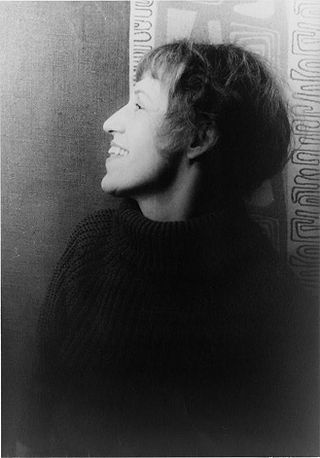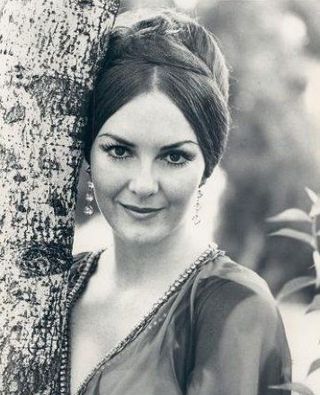
Rise and Fall of the City of Mahagonny is a political-satirical opera composed by Kurt Weill to a German libretto by Bertolt Brecht. It was first performed on 9 March 1930 at the Neues Theater in Leipzig.

The Threepenny Opera is a German "play with music" by Bertolt Brecht, adapted from a translation by Elisabeth Hauptmann of John Gay's 18th-century English ballad opera, The Beggar's Opera, and four ballads by François Villon, with music by Kurt Weill. Although there is debate as to how much, if any, contribution Hauptmann might have made to the text, Brecht is usually listed as sole author.

Kurt Julian Weill was a German-born American composer active from the 1920s in his native country, and in his later years in the United States. He was a leading composer for the stage who was best known for his fruitful collaborations with Bertolt Brecht. With Brecht, he developed productions such as his best-known work, The Threepenny Opera, which included the ballad "Mack the Knife". Weill held the ideal of writing music that served a socially useful purpose, Gebrauchsmusik. He also wrote several works for the concert hall and a number of works on Jewish themes. He became a United States citizen in 1943.

Lotte Lenya was an Austrian-American singer, diseuse, and actress, long based in the United States. In the German-speaking and classical music world, she is best remembered for her performances of the songs of her first husband, Kurt Weill. In English-language cinema, she was nominated for an Academy Award for her role as a jaded aristocrat in The Roman Spring of Mrs. Stone (1961). She also played the murderous and sadistic Rosa Klebb in the James Bond movie From Russia with Love (1963).

Teresa Stratas is an operatic soprano and actress from Canada of Greek descent. She is especially well known for her award-winning recording of Alban Berg's Lulu. She has now formally retired.
The "Alabama Song"—also known as "Moon of Alabama", "Moon over Alabama", and "Whisky Bar"—is an English version of a song written by Bertolt Brecht and translated from German by his close collaborator Elisabeth Hauptmann in 1925 and set to music by Kurt Weill for the 1927 play Little Mahagonny. It was reused for the 1930 opera Rise and Fall of the City of Mahagonny and has been recorded by the Doors and David Bowie.

Anja Silja Regina Langwagen is a German soprano singer.

Angelika Kirchschlager is an Austrian mezzo-soprano opera and lieder singer.

Karan Armstrong was an American operatic soprano, who was celebrated as a singing actress. After winning the Metropolitan Opera National Council Auditions in 1966, she was given small roles at the Metropolitan Opera, and appeared in leading roles at the New York City Opera from 1969, including Conceptión in Ravel's L'heure espagnol, Blonde in Mozart's Die Entführung aus dem Serail, and the title roles in Verdi's La traviata, Offenbach's La belle Hélène and Puccini's La fanciulla del West. After she performed in Europe from 1974, first as Micaëla in Bizet's Carmen, and then as a sensational Salome at the Opéra du Rhin, she enjoyed a career at major opera houses, appearing in several opera recordings and films. Armstrong was for decades a leading soprano at the Deutsche Oper Berlin, where her husband Götz Friedrich was director. She appeared in world premieres, including Gottfried von Einem's Jesu Hochzeit, Luciano Berio's Un re in ascolto and York Höller's Der Meister und Margarita. She was awarded the title Kammersängerin twice.

Catherine Malfitano is an American operatic soprano and opera director. Malfitano was born in New York City, the daughter of a ballet dancer mother, Maria Maslova, and a violinist father, Joseph Malfitano. She attended the High School of Music and Art and studied at the Frank Corsaro Studio and Manhattan School of Music, graduating in 1971. She often mentions that she was rejected from The Juilliard School.
Peter Zadek was a German director of theatre, opera and film, a translator and a screenwriter. He is regarded as one of the greatest directors in German-speaking theater.

Mahagonny, ein Songspiel, or Mahagonny, a song-play, was written by composer Kurt Weill and dramatist Bertolt Brecht and first performed with that title and description in 1927. Elisabeth Hauptmann contributed the words to two of its songs. Just under half an hour in length, the work can be thought of as a staged or scenic cantata. By the end of 1929, however, Mahagonny had grown into a two-hour opera with the title Aufstieg und Fall der Stadt Mahagonny, or Rise and Fall of the City of Mahagonny. This was premiered in March 1930. Today the cantata and the opera are considered separately, the latter holding a place in the repertory, the former being an occasional piece staged in small theaters or programmed as an outgrowth of a song recital when resources permit. For this reason the shorter work is informally referred to as Das kleine Mahagonny, or The Little Mahagonny, or as Mahagonny-Songspiel.

Inga Nielsen was a Danish soprano who had an active international opera career from 1971 to 2006. A child prodigy, Nielsen performed on American radio during the 1950s, beginning at the age of six, and also released some commercial recordings of Danish folk songs and Christmas carols as a child. She began her opera career performing parts in the lyric soprano repertory and then became an admired singer of dramatic soprano roles, beginning in the late 1980s. She was a particularly renowned interpreter of the roles of Konstanze in Mozart's Die Entführung aus dem Serail and the title role in Strauss's Salome. She excelled in portraying some of the more rarely heard and demanding dramatic soprano roles such as the woman in Schoenberg's Erwartung, Ursula in Hindemith's Mathis der Maler and Jenny in Weill's Rise and Fall of the City of Mahagonny.
Wolfgang Neumann is an Austrian internationally known operatic heldentenor, who specialized in the operas of Richard Wagner.

Sonja Kehler was a German actress and chanson singer, known internationally for her interpretation of works by Bertolt Brecht, first playing his characters on the theatre stage, then focused on singing his songs and those of others in solo programs. She also taught acting in Danish at the theatre academy in Odense, appeared in films, worked as stage director and presented literary programs.

Elisabeth Kulman is an Austrian classical singer who has performed operatic roles in soprano, mezzo-soprano and contralto repertory. She has appeared at opera houses in Vienna and internationally. She has performed early operas such as Legrenzi's Il Giustino as well as new works, creating the role of Gora in the premiere of Reimann's Medea at the Vienna State Opera. She recorded Lieder by Mussorgsky, Bach's Christmas Oratorio with Peter Schreier and Beethoven's Missa solemnis with Nikolaus Harnoncourt. From 2015, she has focused on concert singing.
Peter Minich was an Austrian stage actor who became a tenor performing in operas, operettas and musical films. He was for decades the lead tenor of the Volksoper in Vienna, focused on Viennese operetta.
Anke Sieloff is a German opera, operetta, and musical soprano and mezzo-soprano. A member of the Musiktheater im Revier, she has focused on musical roles such as Maria in West Side Story, the title characters in both Kiss Me, Kate and Evita, and a witch in the first German production of The Witches of Eastwick. She taught both classical singing and pop singing at music universities.
Hildegard Heichele is a German soprano in opera, concert and recital. A member of the Oper Frankfurt from 1974, she has appeared in major European opera houses, concert halls and international festivals. She is known for Mozart roles such as Susanna, Blonde and Despina. Heichele is featured on opera recordings, including a DVD of Die Fledermaus by Johann Strauss from the Royal Opera House in London, and singing concerts, such as the opening of the Alte Oper with Mahler's Eighth Symphony in 1981.
Ulrike Helzel is a German operatic mezzo-soprano.











